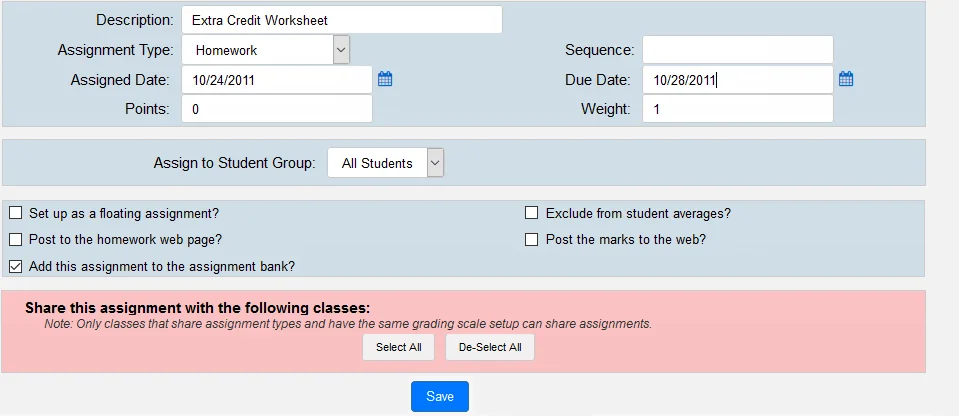Extra Credit Ideas to Save Your Grade and Score High

Opportunities for extra credit are a crucial lifeline for students hoping to improve their scores and succeed academically.
This tutorial will discuss the importance of extra credit and how it may be a potent weapon for raising grades.
We will explore many extra credit possibilities that significantly impact your academic journey, ranging from classroom-based options to individual study and collaborative initiatives.
More so, to succeed in your studies, learn to take advantage of these possibilities and use them strategically.
Types of Extra Credit Opportunities
1. Classroom-Based
Engaging in class discussions enhances your understanding of the material and demonstrates your commitment to the subject.

Instructors often reward participation with extra credit points. Sharing thoughtful insights and asking questions can set you on the path to academic success.
Some instructors offer bonus assignments that allow you to earn extra credit. These assignments may delve deeper into the course content or explore related topics.
Completing them showcases your dedication to going above and beyond standard coursework.
Review sessions provide a valuable opportunity to reinforce knowledge and clarify doubts before exams.
Instructors may grant extra credit to students who attend these sessions, as it reflects a proactive approach to learning and exam preparation.
Additionally, engaging with peers during review sessions can enhance your understanding through collaborative learning.
2. Independent Study
Engaging in independent research or projects related to your coursework can be a rewarding way to earn extra credit.
Also, this may involve delving deeper into a particular subject, conducting experiments, or exploring real-world applications of what you’ve learned in class.
Independent projects demonstrate your initiative and contribute to a deeper understanding of the material.
Some instructors offer extra credit for self-assessment and reflection assignments. These tasks require you to critically evaluate your course progress, identify improvement areas, and set academic growth goals.
Self-assessment encourages metacognition and fosters a sense of accountability, making it a valuable tool for personal and academic development.
3. Collaborative Efforts
Collaborative group projects or presentations can be an excellent way to earn extra credit.
Working closely with peers enhances teamwork and communication skills and fosters a deeper understanding of the subject matter—instructors often reward groups that excel in their projects or presentations, incentivizing active and effective collaboration.
Consider offering peer tutoring or teaching assistance if you excel in a particular subject. Many instructors appreciate students who help their peers grasp challenging concepts.
In return, you can earn extra credit for your mentoring efforts.
Peer tutoring benefits your classmates and reinforces your understanding of the material, making it a win-win opportunity.
4. Online and Technology-Based

Some courses incorporate online quizzes or participation in discussion forums as avenues for earning extra credit.
Engaging in these virtual platforms can enhance your understanding of the material through interactive learning.
Active participation in online discussions by sharing insights, asking questions, or helping classmates can contribute extra credit points.
It is an effective way to stay connected with the course material, especially in virtual learning environments.
Embracing educational apps or software related to your course can offer extra credit potential. Some instructors encourage students to explore supplementary resources that align with the curriculum.
Demonstrating your proactive use of educational technology and reporting how it has enriched your learning experience may earn you extra credit points while sharpening your digital literacy skills.
How to Approach Extra Credit
Begin by evaluating your current standing in the course. Identify areas where you need improvement and consider how extra credit can address those needs.
Analyze your strengths and weaknesses in the subject matter to determine which additional credit opportunities align best with your academic goals.
Effective communication with your instructor is vital. Seek clarity on available extra credit options, their requirements, and deadlines.
Inquire about your performance in the course and whether extra credit is recommended. Establishing open lines of communication ensures you make informed decisions.
Time management is crucial when pursuing extra credit. Ensure you allocate sufficient time to complete the tasks without neglecting your regular coursework and commitments. A well-structured schedule helps you balance your academic responsibilities effectively.
While extra credit can be beneficial, it should complement, not overwhelm, your regular coursework. Maintain a balance to prevent burnout and ensure you continue to excel in your core assignments and assessments.
Prioritize your coursework while strategically integrating extra credit opportunities to enhance your academic experience. Remember, if extra credit doesn’t work for you, you may be retaking a class.
Benefits of Pursuing Extra Credit
Pursuing extra credit can improve grades, allowing you to raise your overall GPA. Higher grades can open doors to scholarships, honors programs, or graduate school admissions, enhancing your academic credentials.

Extra credit activities often involve a more profound exploration of the course material.
This deeper understanding goes beyond earning points; it enriches your comprehension and mastery of the subject, ensuring a solid foundation for future coursework.
Active participation in extra credit can foster a positive rapport with instructors. Your dedication and enthusiasm for learning are likely to be noticed, potentially leading to more vital letters of recommendation or opportunities for mentorship.
Pursuing extra credit reflects a commitment to personal and academic growth. It encourages resilience, curiosity, and initiative, which are invaluable in academia and your future career and life endeavors.
Potential Challenges and Precautions
One challenge of pursuing extra credit is the risk of overcommitting and experiencing burnout. To avoid this, carefully assess your existing workload and commitments.
Prioritize your well-being and ensure a balanced approach to prevent academic fatigue.
While pursuing extra credit, maintain the same high standards you apply to regular coursework. Ensure that the quality of your work meets or exceeds the instructor’s expectations. Seek feedback to refine your extra credit assignments.
Meeting deadlines and fulfilling extra credit requirements is essential. Stay organized and plan your time effectively to ensure timely completion. Please meet these criteria to avoid missed opportunities and disappointment.
Be vigilant about avoiding academic dishonesty when pursuing extra credit. Always cite sources appropriately, adhere to the instructions, and create original work.
Maintaining academic integrity is crucial to reaping the benefits of extra credit while upholding ethical standards.
Real-Life Examples of Successful Extra Credit Endeavors
Student A initially struggled in a history course but decided to actively participate in class discussions and complete bonus assignments for extra credit.
As a result, their understanding of historical events deepened, leading to a notable improvement in grades.
Through pursuing extra credit strategically, Student A transformed their academic journey and gained a newfound appreciation for history.
Student B, passionate about science, approached their instructor for extra credit opportunities. They embarked on a research project related to the course material, investigating a scientific phenomenon. This initiative earned them extra credit and ignited a lifelong interest in research and scientific exploration.
Student C thrived in a group presentation for extra credit. Their collaborative efforts, dedication, and effective communication within the group impressed both peers and instructors.
Mostly, this experience boosted their grade and honed valuable teamwork and presentation skills, setting the stage for future academic and professional success.
Conclusion
In summary, the value of extra credit in academia must be balanced. It is a dynamic tool for academic enhancement, allowing students to bolster their grades, deepen their subject knowledge, and foster positive relationships with instructors.
Extra credit also cultivates personal and academic growth, nurturing qualities like determination and curiosity that are vital for future success.
Students are encouraged to proactively explore and engage with extra credit opportunities as they navigate their academic journey.
Embracing these avenues contributes to a more enriching educational experience and paves the way for a brighter academic future.

Josh Jasen or JJ as we fondly call him, is a senior academic editor at Grade Bees in charge of the writing department. When not managing complex essays and academic writing tasks, Josh is busy advising students on how to pass assignments. In his spare time, he loves playing football or walking with his dog around the park.




